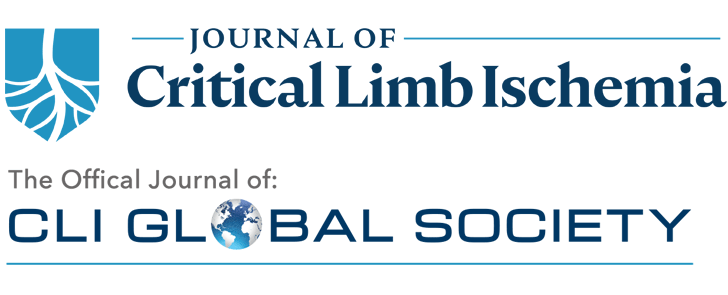Biomarkers to Predict Readmission: Fact or Fantasy?
Katherine L. Morrow, MD and Anahita Dua, MD, MS, MBA
ISSN: 2694-3026
J Crit Limb Ischemia. 2022;2(2):E45.
Editorial Commentary
In this issue of the Journal of Critical Limb Ischemia, the article by Khan et al1 highlights the importance of preoperative biomarkers in identifying patients who are at higher risk of postoperative complications warranting readmission, thereby helping to identify patients who may need closer monitoring postoperatively to ensure appropriate recovery after surgery. As the paper notes, it remains unclear whether lowering these biomarkers would correspond to a reduction in postoperative complications or readmissions, and this is an area that warrants further investigation. We appreciate the authors’ investigation into the use of preoperative C-reactive protein levels as a means of predicting risk of readmission for patients who have undergone elective vascular surgery. However, it appears that these biomarkers can be used at a minimum to identify patients who are at higher risk, which is commendable given that it allows for an opportunity to prevent significant morbidity and reduce financial burden.
Other risk factors for readmission that were noted in this paper included diabetes mellitus and active smoking, both of which are clearly prevalent issues among vascular surgical patients. An important component of both inpatient care and outpatient follow-up includes addressing these and other comorbidities, as they can contribute to the exacerbation of vascular disease processes. Providers should ensure that patients with diabetes are managing their blood sugar levels closely and are making healthy dietary choices. Similarly, educating patients on the impact of cigarette smoking on the vasculature should be emphasized, as some patients don’t recognize the impact of cigarettes beyond the pulmonary system. Management of comorbidities such as diabetes and tobacco use should be emphasized in the care of vascular patients. By highlighting these well-known risk factors in conjunction with reporting on the utility of a new biomarker, the authors provide a potential avenue for risk-predictive scoring.
Aside from the medical issues highlighted by these authors, it is important to note that socioeconomic factors should also be considered when determining a patient’s postoperative care plan, as this can have a major impact on risk for readmission. Case management and social workers in particular can be instrumental in assisting patients with finding resources to help with their recovery. Discharge paperwork should be reviewed carefully with patients to ensure they clearly understand the instructions for postoperative recovery. A patient’s ability to pay for their medications should be determined prior to discharge. Visiting nursing staff should be coordinated if indicated. Providers should ensure that patients have a method of transportation to get to their postoperative clinic visits. Consistent outpatient surveillance is needed to ensure patients are progressing appropriately postoperatively.
Clearly, there remains a need for further investigation regarding methods of reducing readmission following elective vascular surgery. This paper alone identified a readmission rate of 29% within 1 year of discharge following elective vascular surgery. Multidisciplinary management of vascular surgical patients is often indicated postoperatively, whether for management of diabetes, cardiac issues, pulmonary disease, or other comorbidities. Routine outpatient clinic follow-up can play a key role in ensuring that patients are progressing appropriately after surgery, and can help to identify problems before they become significant enough to warrant readmission to the hospital. While some readmissions will be unavoidable, others can be avoided with proper management and surveillance in the outpatient setting. A focus on prevention is a cornerstone of medical care in 2022. Biomarkers that may identify higher-risk patients provide a thoughtful, objective avenue that needs continued exploration.
Disclosures
From the Division of Vascular and Endovascular Surgery, Massachusetts General Hospital/Harvard Medical School, Boston, Massachusetts.
Disclosure: The authors have completed and returned the ICMJE Form for Disclosure of Potential Conflicts of Interest. The authors report no conflicts of interest regarding the content herein.
Address for correspondence: Anahita Dua, MD, MS, MBA, FACS, Mass General Vascular Center: Vascular and Endovascular Surgery, 55 Fruit St., Boston, MA 02114. Email: anahitadua@gmail.com

